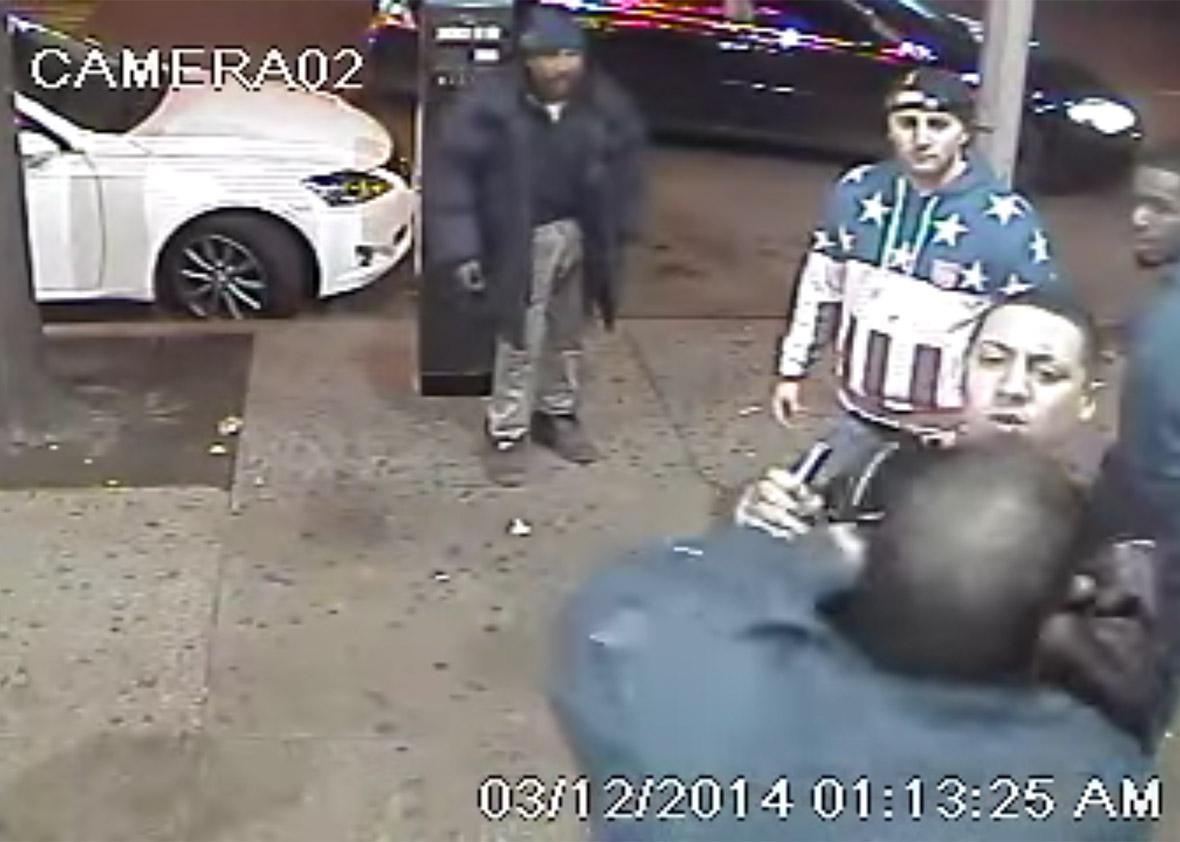The past year provided plenty of video evidence that, far too often, police officers lie at the expense of civilians in order to protect themselves. The Walter Scott cellphone video out of North Charleston showed Michael Slager planting a Taser next to his victim’s body, with the apparent hope of substantiating a version of the story in which Scott attacked him with a stun gun. The Laquan McDonald dashcam footage from Chicago showed that Jason Van Dyke and other officers on the scene had all lied in reporting to their superiors that McDonald was coming toward them with a knife when Van Dyke opened fire. Both of those incidents resulted in criminal charges against the cops—a testament to the power of video to undercut official narratives that in another era would have likely gone unquestioned.
On Tuesday, we saw it happen again, in New York, though this time no one had to die for a criminal indictment to follow. The incident took place in March 2014, when NYPD officer Jonathan Munoz frisked a woman standing outside a restaurant in Washington Heights and then arrested a 21-year-old friend of hers, named Jason Disisto, who tried to film the encounter on a cellphone. Munoz booked Disisto for obstructing governmental administration, disorderly conduct, and resisting arrest, and in his incident report, wrote that Disisto had lunged at him and tried to punch him.
A few months later, security footage came out showing that Disisto had done nothing of the sort—that while there was a physical confrontation between him and Munoz, it only started after Munoz grabbed him, seemingly in response to Disisto’s decision to film him with a cellphone. At no point, according to the video, did Disisto throw a punch.
On Tuesday, a grand jury voted to indict Munoz on criminal charges of official misconduct and lying on a criminal complaint. Munoz, who is 32, pleaded not guilty, and his lawyer said that audio from the confrontation—which is missing from the video—would have given a more complete picture of what happened.
The indictment of Munoz serves as a reminder of several things. First, it’s not illegal to film police as long as you don’t interfere with their ability to do their jobs. Second, it’s much riskier now than it ever has been for police officers who have engaged in misconduct to lie about what happened. Even if Munoz is not convicted, this will be good news for the police accountability movement: The goal of reform, after all, is not just to put some police officers in prison, but to make all police officers better, more fair, and more honest. The more they know that lying is an ineffective way to cover up bad police work, the less they’ll do it, and the more good police work they’ll get done.
